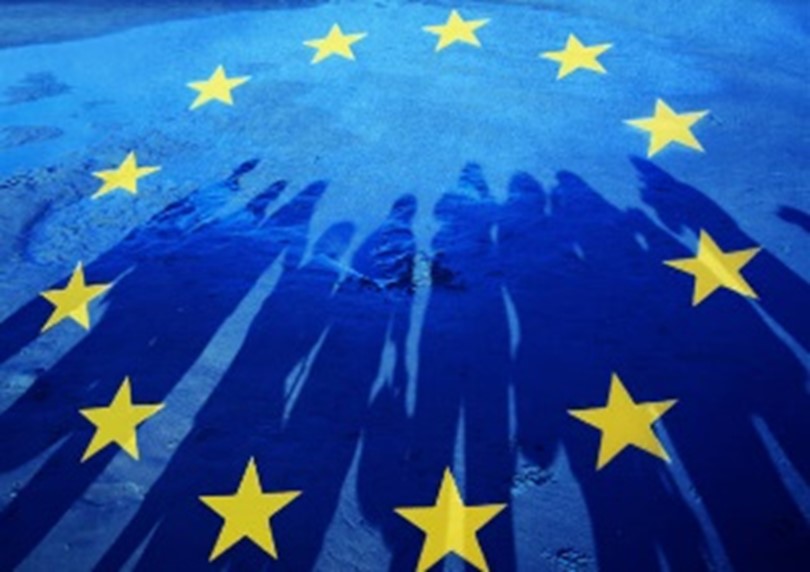Giammarco Frattoli
It is often said that young European citizens do not participate enough in the EU’s democratic and political life. As stated in the previous article, post-election Eurobarometer surveys up to 2014 showed, in fact, that the greatest abstainers at the elections were people aged under 25.[1]
However, the last European Parliament elections in 2019 tell a different story. Four years ago, something began to change, as the overall turnout of 50.66% was the highest in the latest 25 years. What is more, younger voters had a particular impact on the overall turnout: +14 percentage points among citizens aged under 25 (42%) and +12 pp among the 25–39-year-olds (47%) compared with 2014’s results.[2] Although the number of older people (55 or over) who voted in 2019 was still higher (54%) than younger voters, their increase in turnout was lower (only +3 pp), meaning that the differences between age groups had narrowed.[3] That is why it can be said that younger voters drove the voting boost in 2019, demonstrating that their votes matter.

Generational trends
Considering the main issues which encouraged people to vote more in 2019, like economy and growth, climate change, human rights and democracy, and immigration, significant differences can be noted between younger voters (under 25) and older ones. Overall, “economy and growth” was the most cross-sectional reason which pushed people to vote, being the top priority issue in every age group. However, younger voters were more likely than older voters to say that preserving the environment and facing climate change was an issue that made them vote: 45% of them compared with 34% of those aged 55 or over. In addition, they were also more likely to cite human rights and democracy promotion (44% vs. 34%) as a motivation to take part in the elections. At the same time, respondents aged 25–39 were particularly influenced by the way the EU should be working in the future (42%). On the other hand, immigration was less likely to be mentioned as a driving issue to vote by under 25s (only 29%) than those in the older age groups (34%–35%).[4]
The differences analysed show that some issues are more generational than others, which means they tend to involve more a specific age group. For instance, climate change and human rights are among the most pressing issues for the younger generation. As consequence, one way to push younger citizens to participate and vote even more is placing those topics at the core of current EU’s policies, emphasising their contingent importance. Furthermore, another relevant aspect pointed out by the Youth Survey 2021 is that the proportion of respondents (young people aged 16-30) who stated to have voted in 2019 increases with 3 factors: age, education and parental education, and financial security. This proportion, in fact, increases from 57% among 16-19-year-olds to 69% among 26-30s. Then, it is higher among people who completed education at 20 or older and among people whose parents have a college or university level education. Finally, it increases with a higher financial security of the household, among younger citizens who can afford everything they need. Overall, these figures highlight the fact that economic stability and a good education facilitate the turnout of younger voters which, obviously, is affected by the age and the family situation.[5]
This is the reason why, despite the younger voters’ increase in turnout in 2019, students still made up 12% of the abstainers, more than in 2014 (8%). Nevertheless, the Eurobarometer analysis shows that, overall, abstainers were older than in 2014, with more people aged 55 or over (35% in 2019 vs. 30% in 2014) and fewer aged 25-39 (24% vs. 30%). That confirms the great increase in turnout among younger citizens in the past elections. Moreover, considering the whole of the voters, political interest among abstainers was higher in 2019 than in 2014, and more of them were likely to say that their voice counts in the EU: 42% in 2019 compared to 26% in 2014. This suggests that the group of abstainers became more politically engaged and aware. As a result, there is consensus and space to increase political participation towards the next European elections.[6]

What’s next?
As declared by the former President of the European Parliament, prematurely passed away, David Sassoli in 2019:
«The very significant boost in voter turn-out in May’s European elections shows that people, especially the younger generation, value their democratic rights and believe that the European Union is stronger when acting in unison to address their concerns […]».[7]
Those words should orient the EU’s compass towards the promotion of young citizens’ involvement in democracy. The 2019 significant boost in turnout might have been the beginning of a new positive voting trend due to the raising political awareness and engagement, and thanks to the activism around generational issues, like climate change, especially among younger voters. However, if not supported and encouraged, this process might also stop and regress. Therefore, now more than ever, it is vital to keep working and campaigning to stimulate young people’s democratic participation and to increase the turnout even further at the next European Parliament elections in 2024.

[1] Eurobarometer survey of the European Parliament (EP/EB 91.5), September 2019, published by the “Public Opinion Monitoring Unit Directorate-General for Communication”, European Parliament, Brussels, European Union.
[2] https://www.europarl.europa.eu/news/en/press-room/20190923IPR61602/2019-european-elections-record-turnout-driven-by-young-people.
[3] Eurobarometer survey of the European Parliament (EP/EB 91.5), September 2019, published by the “Public Opinion Monitoring Unit Directorate-General for Communication”, European Parliament, Brussels, European Union.
[4] Ibidem.
[5] European Parliament Youth Survey – Report, September 2021, (https://www.europarl.europa.eu/at-your-service/en/be-heard/eurobarometer/youth-survey-2021).
[6] Eurobarometer survey of the European Parliament (EP/EB 91.5), September 2019, published by the “Public Opinion Monitoring Unit Directorate-General for Communication”, European Parliament, Brussels, European Union.
[7] https://www.europarl.europa.eu/news/en/press-room/20190923IPR61602/2019-european-elections-record-turnout-driven-by-young-people.
